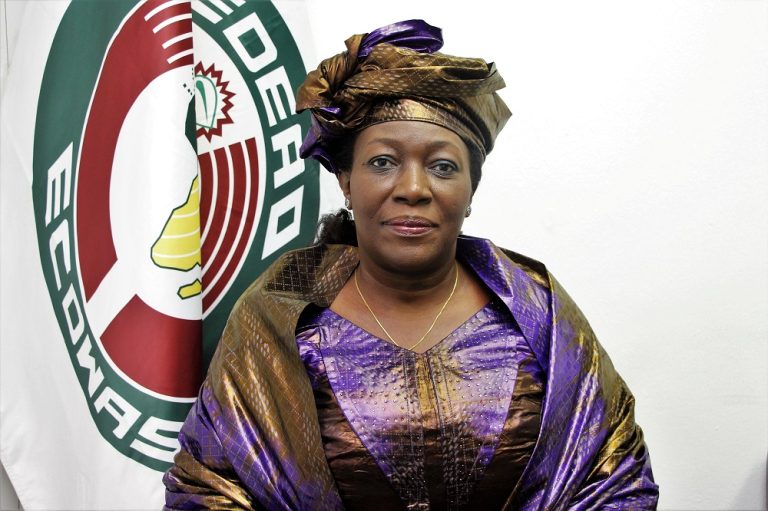From Abel Leonard, Lafia
The Chief Executive Officer of Human Capital Development Plus (HCD+) and former ECOWAS Vice Chairman, Madam Finda Koroma has said Nigeria ranks among the top 20 nations globally with the highest number of out-of-school children, with a greater incidence among females.
Speaking at a one-day workshop in Lafia through Madam Margaret Omanibe, Head of Finance and Administration at HCD+, Koroma emphasized the need for concerted efforts to address the challenges in education as a critical aspect of human capital development.
The workshop, held at Taal Conference Hotel, Lafia yesterday in collaboration with key stakeholders including the Emir of Lafia, Justice Sidi Bage Muhammad (Retired), and the Nasarawa State Government, underscored Nigeria’s commitment to advancing human capital development through education.
Koroma highlighted the Federal Republic of Nigeria’s goal to reduce the number of out-of-school children by at least 70% by 2030, stressing that overcoming educational challenges is crucial for achieving positive outcomes in other sectors and the economy.
Addressing the dire situation, she stated, “Nigeria is among the world’s 20 nations with the highest number of out-of-school children, with more female incidences than male. The Almajiri system, in particular, poses a significant concern, marginalizing children from mainstream education.”
The workshop also brought to light the unique challenges faced by girls in accessing education. “Gender disparities persist, with girls facing challenges such as early marriage, household responsibilities, and cultural biases.
Ensuring girls’ access to education is crucial not only for their individual empowerment but for broader socioeconomic development,” Koroma emphasized.
Koroma issued a call to action for all stakeholders to contribute towards the development of a comprehensive Education and Skills Development Advocacy Strategy. “Together, let us chart a course towards a brighter, more prosperous future for human capital development in Nigeria,” she urged, expressing gratitude to the Nasarawa State Government and traditional rulers for their unwavering support.
In his welcome address, the Deputy Governor of Nasarawa State, Dr. Emmanuel Akabe, represented by the Focal Person for Nasarawa State Human Capital Development, Madam Habiba Suleiman, emphasized the state’s dedication to human capital development.
She noted that this commitment was encapsulated in the Nasarawa Economic Development Strategy (NEDS) document. “For us, human capital development is a top priority. We have not only adopted the national thematic areas but expanded them to address our state’s unique challenges,” she said.
Madam Suleiman further highlighted the urgency of addressing the issue of out-of-school children, particularly girls, describing it as “a ticking time bomb that needs to be defused as soon as possible.”
She stressed the importance of providing not just formal education but also skills training to ensure that these children can contribute meaningfully to society.
Representing the Emir of Lafia, the Ubangari Lafia, Usman Isah Baba, expressed the Emir’s full support for the initiative during a courtesy visit. He conveyed the Emir’s commitment to being an active participant in the program, stating, “The Emir has asked me to assure the organizers that we are fully behind this initiative. The issue of out-of-school children, particularly the girl child, has been a concern for us, and we welcome this program with open arms.”
In her remarks, Mrs. Maryam Uwais, the Lead Education Advocacy Consultant for the Design of Strategy, focused on the importance of placing the girl child at the center of these efforts. “We cannot leave the girl child behind,” she stated. “The current state of education, especially in rural areas, has significant gaps that need to be addressed, particularly in terms of infrastructure and teacher training.”
Mrs. Uwais called for a comprehensive approach to reforming education, including curriculum reform and continuous professional development for educators. She noted, “We need curricula that integrate 21st-century skills such as critical thinking, creativity, communication, and collaboration. Our teachers must also be equipped with the tools and knowledge to deliver modern, relevant education.”
Highlighting the challenges faced by young girls in the region, Mrs. Uwais emphasized the negative impact of early marriage on education and overall community health. “Early marriage has a ripple effect on our communities. A girl who is not allowed to mature before marriage is at risk of health complications, and her children are more likely to be malnourished,” she said.
Mrs. Uwais also stressed the need for vocational and technical training, particularly in agriculture and digital skills, to empower young girls to become self-reliant. “If a girl learns skills but cannot count or engage in the market due to a lack of education, she remains disadvantaged. We must provide comprehensive support to ensure that girls can earn a decent living and contribute to their families and communities,” she added.
Mrs. Busayo Raymond Ayinde of the Federal Ministry of Education’s Basic Department who is a participant praised the initiative, stating, “This program is a game-changer for Nigeria. It has the potential to significantly reduce the number of out-of-school children and Almajiri, especially among the girl child. It is a vital step towards eradicating poverty and reintegrating these children into society.”
Mrs. Ayinde expressed confidence in the program’s ability to reduce the number of Almajiri children on the streets by 70%, describing it as a critical tool for the Federal Ministry of Education. “HCD+ will play a crucial role in supporting our efforts to address this issue. The initiative will help us take back our children and bring them back to normalcy,” she said.
